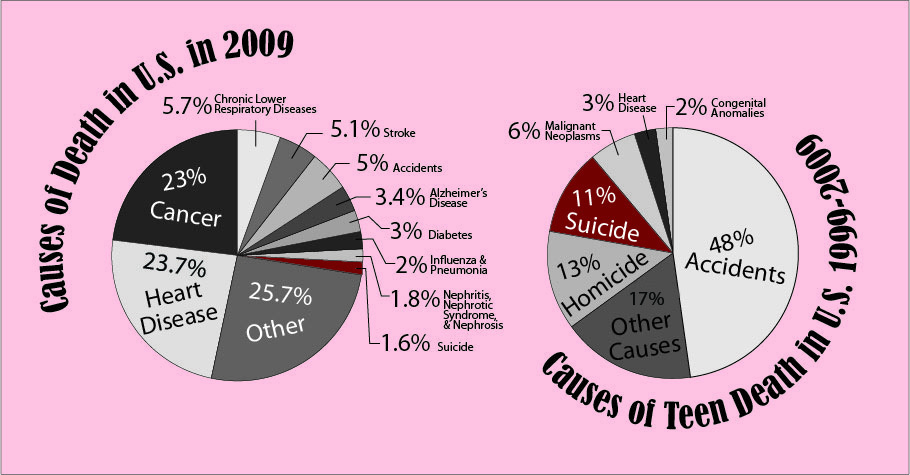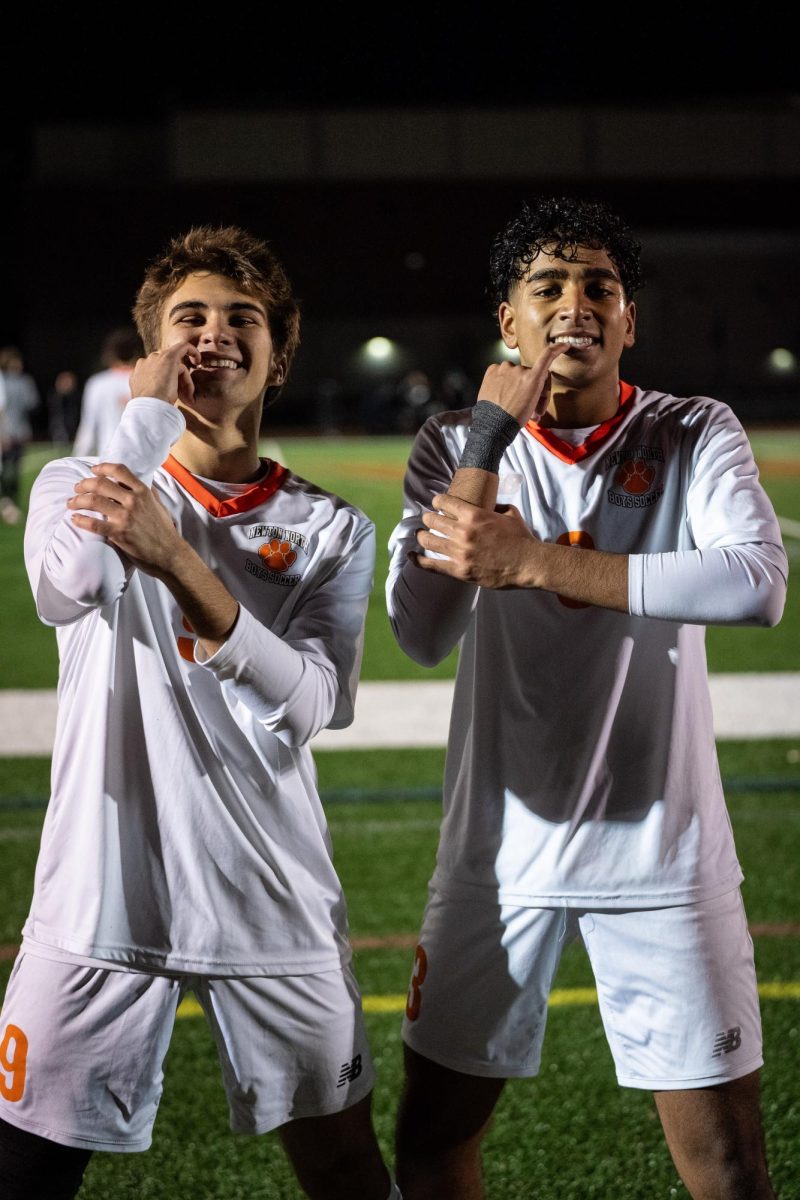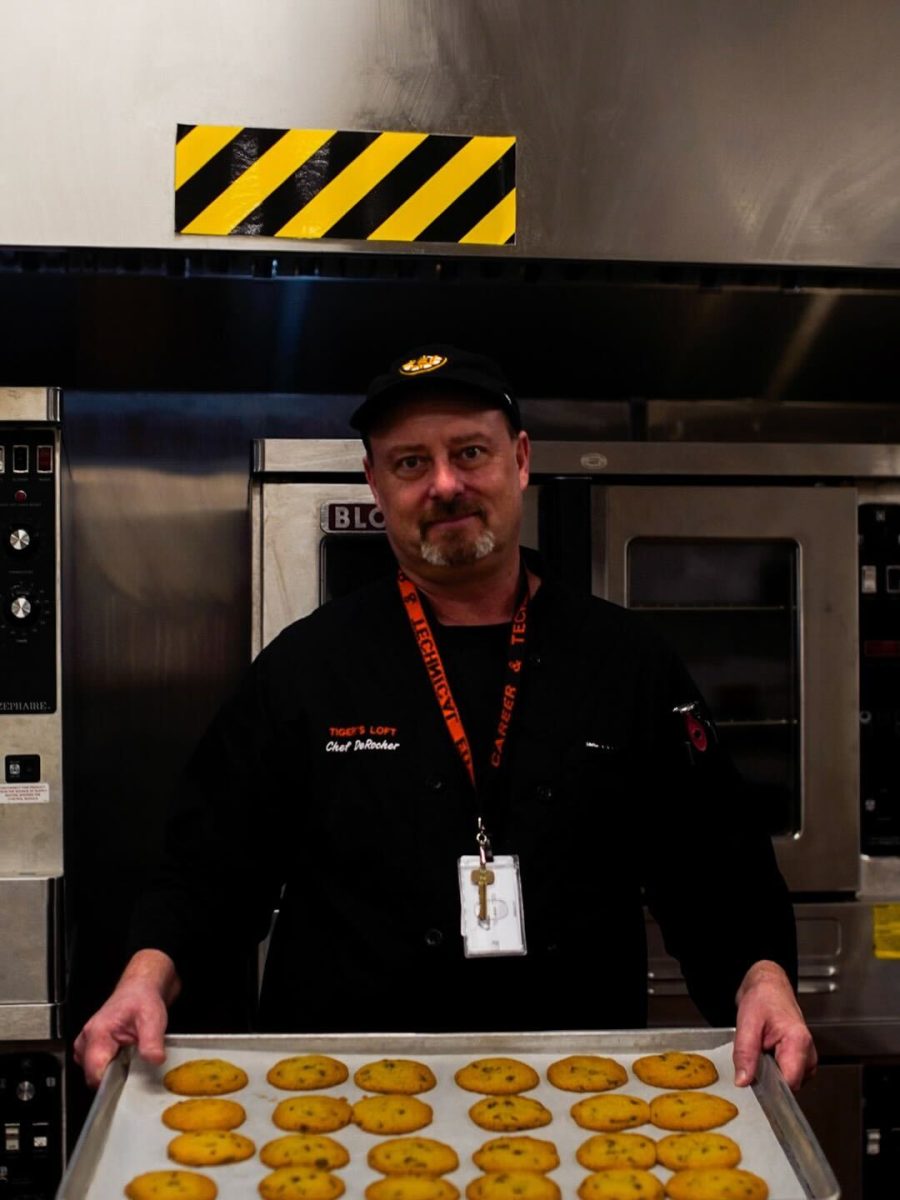by Elena Schwartz
Last year, Newton was rocked by the deaths of three high school students. This community is still dealing with the aftermath of those deaths, and the Newton Public School system is still searching for ways to appropriately address the issue of suicide, including implementing the SOS suicide prevention program.
While suicide came to the forefront of most students’ minds a year ago, senior Eli Schwamm has been helping address the problem since he was a sophomore. That’s because Schwamm volunteers at Samaritans, a suicide prevention hotline.
Schwamm first learned about the organization through the Just Think Expo, where he saw the Samaritans booth and signed up. He began volunteering after turning 16, the minimum age for volunteers.
According to Schwamm, most volunteers are people in the age bracket 16 to 22 or 40 to 60. There are also many more women than men—the ratio stands somewhere around 65/35. But a shared value unites them all: a belief in the importance of listening.
“The purpose of the call is catharsis,” said Schwamm. “Callers are people who feel isolated; they don’t have outlets to place their feelings. They just want to be heard.”
To this end, volunteers do not give advice or ask leading questions. Schwamm said that “ninety-nine percent of our goal is to listen and be empathetic, that’s all.”
It is in fact Samaritan’s official policy that “befrienders”—what the organization calls its volunteers—are not supposed to advise callers. “It’s easier because we aren’t qualified to give advice,” Schwamm said. “We don’t know the people well, and we don’t know the situation. There are so many more variables at play than we can understand from ten minutes.”
“The purpose of the call is catharsis,” said Schwamm. “Callers are people who feel isolated; they don’t have outlets to place their feelings. They just want to be heard.”
An important part of answering calls is to believe callers, even if the things they are saying could be impossible.
“Someone might tell me, ‘I’m Barack Obama’s daughter,’ and even if that’s something I would disregard anywhere else, I believe them,” said Schwamm. “Because as soon as you doubt or judge the person, that’s when you start thinking you know better” and offering opinions and suggestions.
Volunteers’ jobs are not “to fix people’s problems” but to act as “a sounding board” for callers’ feelings.
“We ask questions like, ‘I don’t know, what do you think?’ We say ‘Do you think it will get better?’ instead of ‘Have you tried xyz?’” said Schwamm. “If you focus on learning as much as you can about the caller’s emotions, it is easy to avoid giving advice.”
To become a befriender, Schwamm had to interview and then complete eight hours of training a day, two weekends in a row. After this initial process, he was put on a “learning shift” where he observed seasoned befrienders answering the phone. From there, Schwamm was allowed to answer the phone while being monitored by a more experienced volunteer. Now he himself mentors new volunteers, “so I’ve really come full circle,” he said.

Samaritans is volunteer-run. The organization operates two hotlines—a teen hotline and an 800 number (877-870-4673)—as well as a chat service for teens.
Schwamm currently volunteers every Sunday from 9 a.m. until noon. He says the number of calls volunteers receive in a shift depends greatly on the day of the week and the time of day. During his current shift, Schwamm generally receives four to six calls. When he worked on Saturdays from 6 p.m. to 9 p.m., however, he would field 15 to 20 calls in one shift.
Only about one-fourth of callers identify as suicidal, according to Schwamm. “I’ve occasionally gotten calls from people just to say they’re doing well,” he said.
Schwamm says there are no “dumb calls.” There are, however, inappropriate calls, and they generally fall into one of three categories: prank calls, aggressive or angry calls, and calls for sexual gratification. Samaritans has a short list of callers who are immediately redirected for having made inappropriate calls in the past.
“There are very clear warning signs in the first two minutes,” Schwamm said. “When we recognize the type of call, we say, ‘I’m sorry, I have to go,’ and hang up.”
Samaritans imposes a strict ten-minute time limit on calls unless the caller is in immediate danger. This was not always the organization’s policy. But the time limit was implemented after the hotline got so busy that not nearly enough calls were fielded. The organization does, however, offer a callback option so that volunteers can check in on callers in great distress.
Another policy change that occurred about five years ago is that Samaritans will now call an ambulance in extreme cases.
The ambulance is a last resort though, said Schwamm. “First we try to work through whatever’s going on.”
“For example,” he said, “if a caller says ‘I’m afraid I’m going to overdose on my meds,’ I might say, ‘Could you give your meds to your neighbor to keep that from being an option?’”
“I think it’s a self-selecting population that picks up the phone to call,” Schwamm said. “People who are convinced that taking their lives is the best course of action don’t call. The callers are people who are ambivalent: they see reasons to live and reasons to die.”
“Regardless of what I believe when I’m outside of Samaritans, when I volunteer, life is always the better choice.”
The demographics of callers are surprisingly varied. The most underrepresented age group are actually teenagers, who Schwamm says tend to use Samaritan’s chat service. Though teens have a higher rate of attempting suicide, the most at-risk population currently is middle-aged white men.
“Sometimes it’s really hard,” he said. “It can be too much. I never do three shifts a week anymore, because three shifts gets to a point where it messes up my week.”
Volunteers ask callers their first names, though they are not required to share it; volunteers themselves are barred from sharing any information about themselves. This by no means prevents some calls from becoming deeply personal, however.
“I’ve had calls that remind me a lot of people I know and love,” said Schwamm. “There was a particularly difficult time after Karen [Douglas] died when I didn’t know what to do. I took a month’s leave of absence; Samaritans makes a major point of self-care.”
“Sometimes it’s really hard,” he said. “It can be too much. I never do three shifts a week anymore, because three shifts gets to a point where it messes up my week.”
But Schwamm is quick to say that “in my deepest moments of sadness, being at Samaritans has been incredible.”
When asked about how he empathizes with the strangers whose problems he hears, Schwamm answered, “It’s not about deciding whether or not you like the person or their personality. It is about loving them simply for being a person. And if you do, you can care about them, and hopefully, help.”









































